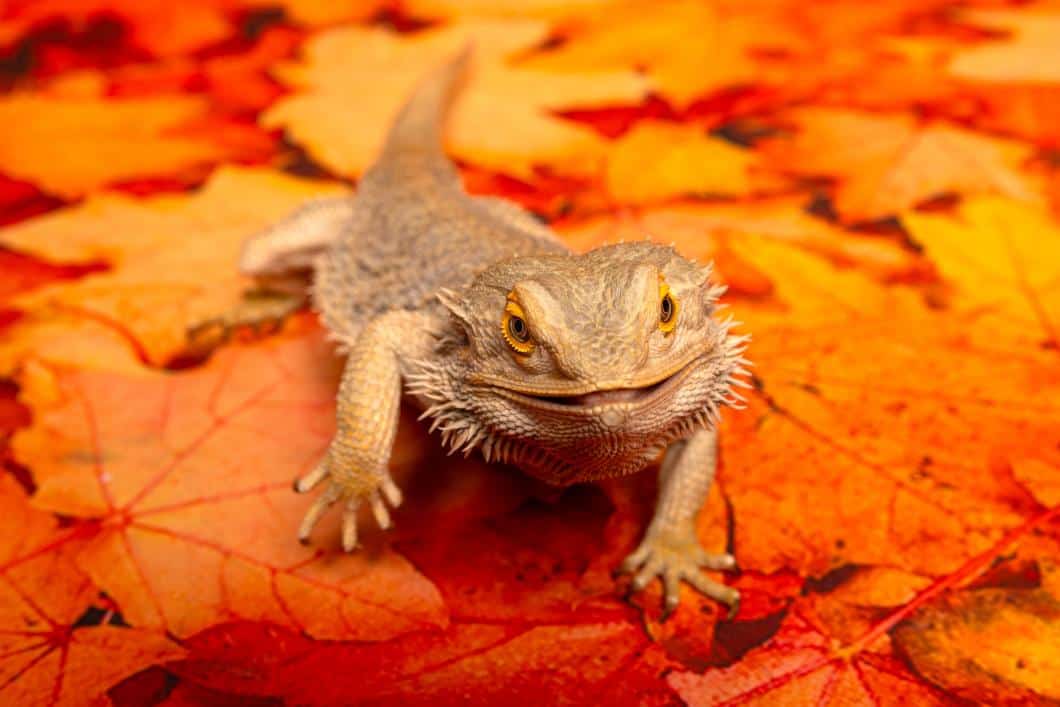What Seasonal Changes Affect Exotic Pets in the Fall? 5 Things to Watch For

While most of us know how seasonal changes affect dogs and cats in the fall—hello, extra layers of fur!—seasonal changes can affect exotic animals, too.
The team at South Texas Avian & Exotic Hospital will share the top five changes to watch for when it comes to exotic pet fall care.
1. Reptile Temperature Changes
Reptiles are cold-blooded, which means they need external heat sources to regulate their bodily functions. When temperatures drop in the fall, this change can slow a reptile’s metabolism. It can make it more difficult to keep their enclosure the right temperature.
If temps drop too low within your pet’s enclosure, they can get lethargic, experience poor digestion, or even enter a hibernation-like state called brumation.
- Key tip: Use a heat source you can control via thermostat and make it a habit to check basking and ambient temperatures with a digital thermometer. Adjust the wattage inside the enclosure or add ceramic heaters if needed.
2. Bird Seasonal Behavior
Birds are extremely sensitive to light cycles. Fall’s shorter days can trigger shifts in your avian pet’s hormones, which can cause territorial behavior, excessive vocalizing, or even nesting habits.
- Key tip: Make sure your bird gets 10-12 hours of full-spectrum light. To do this, use UV lamps on a timer. This can help stabilize your bird’s circadian rhythm. If your avian friend gets aggressive, avoid over-handling her, and instead reach out to your veterinarian for guidance.
3. Humidity Changes Indoors
When the weather outside gets cooler, the heaters indoors turn on and up as we humans try to keep our habitats comfortable. But indoor heating systems dry the air out, which can cause reptiles to have trouble shedding. Amphibians and small mammals can struggle to breathe in dry air.
- Key tip: Use a hygrometer to monitor the humidity inside your pet’s enclosure. Add misting systems, water bowls, and humidifiers as needed to maintain the right humidity level for your species of exotic pet.
4. Changes in Appetite or Activity Levels
Some exotic pets naturally eat less or slow down, physically, in response to seasonal changes. This is especially true for reptiles. But it’s important to know the difference between normal brumation and an illness.
- Key tip: Keep track of your pet’s food intake and weight every week. If your pet skips more than two or three meals or shows signs of distress, schedule an appointment with an exotics veterinarian.
5. Lighting Cycles and Mood
A reduction in natural light affects vitamin D3 production and overall behavior, especially in reptiles and birds. But UVB exposure is important for your pet’s bone health and calcium absorption.
- Key tip: Replace UVB bulbs in your exotic pets’ enclosures every 6-12 months, even if they still light up just fine. Their output degrades over time, so replacing them at least yearly can help your pet stay healthy.
Monitor Seasonal Changes with South Texas Avian & Exotic Hospital
If you aren’t sure what specific changes to keep an eye out for in your exotic pet—or if your pet shows signs of stress or illness—our team is here to help. The veterinarians at South Texas Avian & Exotic Hospital are highly skilled in treating everything from birds and reptiles to amphibians and small exotic mammals.
Schedule an appointment today by calling us at (210) 424-1871.
